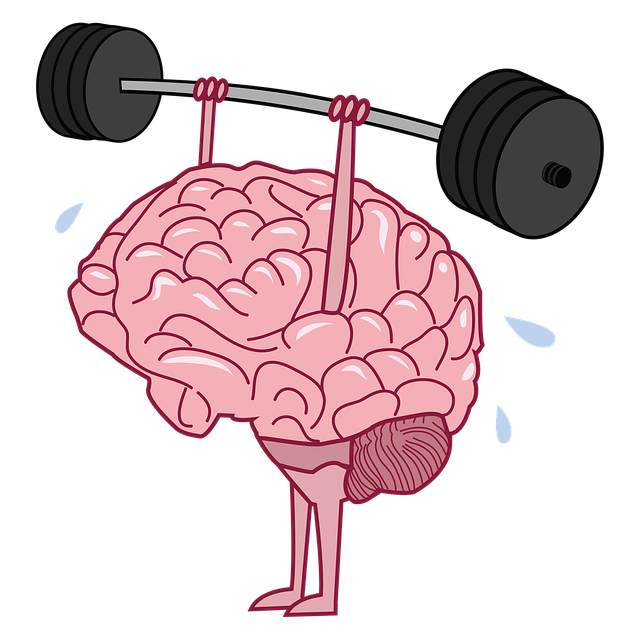Mental health data collection encompasses diverse methods, from direct observations and patient reports to digital tools and therapy records. Louisville Adjustment Disorder Therapy (LADT) leverages this rich data, combining quantitative analysis with qualitative insights for personalized treatment plans. By examining patient records, therapists uncover symptoms, behaviors, and triggers, integrating evidence-based practices like Burnout Prevention Strategies and Mental Wellness Journaling Exercises. This data-driven approach enhances success rates, equips individuals with crisis management tools, fosters emotional intelligence, and targets the underlying causes of adjustment disorders for long-term well-being.
Mental health data analysis is a powerful tool in understanding and treating psychological conditions. In this article, we explore the intricacies of analyzing and interpreting mental health data, focusing on its practical applications in therapy. From identifying trends within collections of data sourced from various clinics to providing insights for tailored treatment plans, such as Louisville Adjustment Disorder Therapy, effective analysis can revolutionize care. We delve into these strategies, highlighting how they enhance patient outcomes and shape the future of mental health services.
- Understanding Mental Health Data: Collection and Sources
- Analyzing and Interpreting Data for Effective Therapy
- Louisville Adjustment Disorder Therapy: Applying Data Insights
Understanding Mental Health Data: Collection and Sources

Understanding Mental Health Data is a multifaceted process that begins with recognizing various sources and methods of collection. Mental health professionals often gather data through direct observations, patient self-reporting, clinical assessments, and structured interviews. Hospitals, clinics, and counseling centers maintain detailed records of treatment sessions, diagnoses, and progress notes, which serve as valuable primary sources.
Additionally, digital tools like Mental Wellness Journals and mobile apps equipped with journaling exercises have gained prominence. These platforms encourage individuals to track their emotions, thoughts, and behaviors, providing a wealth of data for both personal reflection and professional analysis. Furthermore, the integration of mindfulness meditation practices into mental healthcare has led to the collection of qualitative and quantitative data on its effects, enhancing our understanding of effective treatment modalities, such as Louisville Adjustment Disorder Therapy, with cultural sensitivity in mind.
Analyzing and Interpreting Data for Effective Therapy

Effective therapy hinges on robust data analysis and thoughtful interpretation. By delving into patient records, mental health professionals in Louisville can uncover valuable insights into Adjustment Disorder symptoms, behaviors, and triggers. Analyzing trends in mood shifts, anxiety levels, and coping mechanisms allows therapists to tailor treatments, ensuring interventions target specific needs. This precise approach enhances the likelihood of successful outcomes, particularly for complex conditions like Adjustment Disorder.
Integrating data analysis with evidence-based practices, such as Burnout Prevention Strategies for Healthcare Providers and Mental Wellness Journaling Exercises, empowers therapists to guide clients towards lasting recovery. Moreover, Crisis Intervention Guidance can be proactively integrated into therapy plans based on data interpretations, thereby equipping individuals with effective coping strategies to navigate future challenges.
Louisville Adjustment Disorder Therapy: Applying Data Insights

In the context of Louisville Adjustment Disorder Therapy (LADT), leveraging data analysis plays a pivotal role in enhancing therapeutic outcomes and personalizing treatment plans. By delving into quantitative insights, mental health professionals can gain a deeper understanding of an individual’s emotional landscape, identifying patterns that might otherwise remain unseen. This approach allows for more precise targeting of specific emotional healing processes, such as stress management techniques tailored to the patient’s unique needs. Data-driven insights facilitate the development of effective strategies to address underlying causes, fostering growth and resilience in individuals grappling with adjustment disorders.
Moreover, integrating data analysis within LADT encourages a focus on cultivating emotional intelligence. By analyzing responses over time, therapists can assist clients in recognizing triggers and developing coping mechanisms that enhance overall well-being. This holistic approach not only supports the individual’s journey towards recovery but also equips them with valuable tools to navigate life’s challenges, ultimately promoting lasting mental health improvements.
Mental health data analysis plays a pivotal role in enhancing therapeutic outcomes, particularly in specialized areas like Louisville Adjustment Disorder Therapy. By understanding and interpreting data effectively, therapists can tailor treatments to individual needs, fostering more successful recovery journeys. This article has explored the importance of data collection, analysis techniques, and real-world applications, underscoring how insights derived from mental health data drive innovative and personalized therapy approaches.













